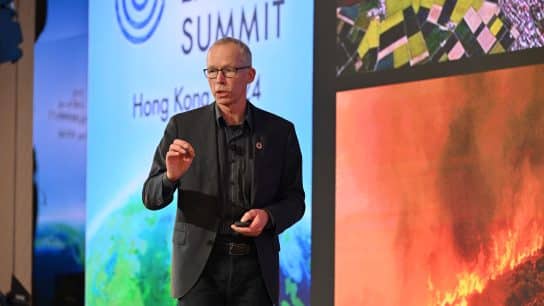On August 24, Earth.Org had a conversation with Ashley Bang, a data scientist who specialises in climate modelling and conservation strategies, about how climate change impacts human and urban environments. In our chat, we talked about the role of data science in influencing policies in mitigating climate change and how it can inform individual behaviours.
—
Ashley spoke with Earth.Org about several topics, including:
- What climate modeling is and why it’s important when we talk about mitigating climate change.
- The recent IPCC Report warns global warming will reach 1.5°C by 2040 based on our historical amount of carbon emissions, and if it goes any high, it will have a knock-on effect on sea level rise, ocean temperatures and acidification, the spread of wildfires – all of which will become overwhelming for humanity.
- Data science can provide clarity about environmental impacts to governments and policy makers, which in turn can make a positive impact towards mitigating climate change. But there’s a danger to data science when statistics are re-packaged to sell a different message.
- How the coronavirus pandemic revealed that people can be incredibly adaptable and helped kickstart behaviour which can significantly reduce greenhouse gas emissions.
Ashley also shared her current data research on plastic packing waste in Hong Kong and found that the city uses 3.9 billion food and drink container in a year alone, even before the pandemic. The amount of waste is enough to fill the IFC building in Hong Kong nearly 50 times over. However, she believes banning plastic packaging may not necessarily be the answer. Research has shown that without price competitive plastic alternatives and a waste system that can effectively deal with these alternatives, cleaning and recycling plastic are actually better for the environment based on today’s conditions.
You can check out the full length video of Earth.Org ‘s conversation with Ashley Bang below:
You might also like: Watch: Earth.Org’s Conversation with Aaron Gekoski


















